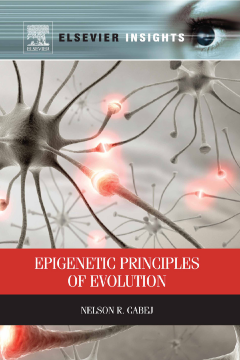
Additional Information
Book Details
Abstract
This is the first and only book, so far, to deal with the causal basis of evolution from an epigenetic view. By revealing the epigenetic "user" of the "genetic toolkit", this book demonstrates the primacy of epigenetic mechanisms and epigenetic information in generating evolutionary novelties.
The author convincingly supports his theory with a host of examples from the most varied fields of biology, by emphasizing changes in developmental pathways as the basic source of evolutionary change in metazoans.
- Original and thought provoking--a radically new theory that overcomes the present difficulties of the theory of evolution
- Is the first and only theory that uses epigenetic mechanisms and principles for explaining evolution of metazoans
- Takes an integrative approach and shows a wide range of learning
"Cabej (biology, U. of Tirana, Albania) explains the epigenetic principles of evolution (as opposed to the theory of evolution as determined by changes in genes) and reconstructs the developmental mechanisms of evolutionary changes in metazoans, based on empirical evidence. He focuses on the mechanisms of the generation of the evolutionary innovations from the influence of environment on heredity rather than the role of natural selection. He discusses control systems and determination of phenotypic traits in metazoans, neural manipulation of gene expression, epigenetic control of reproduction and early development, neural control of postphylotypic development, and the epigenetic system of inheritance. He follows with description of neural-developmental premises of evolutionary adaptation, including evolution and stress responses and behavioral adaptation to changes in environment, ontogeny, and intragenerational developmental plasticity; epigenetics of circumevolutionary phenomena and the mechanism of evolutionary change, including transgenerational developmental plasticity and the evolution of metazoans and their control system; and the origins of evolutionary novelty, evolution by loss or by reverting to ancestral characters, neural crest-determined evolutionary novelties, evolutionary convergences, species and allopatric speciation, and sympatric speciation. He presents the available evidence for his theory, rather than illustrating an established theory, and includes a comparative presentation of the neo-Darwinian view to his epigenetic explanation. There is no index."--Reference and Research Book News, October 2012
